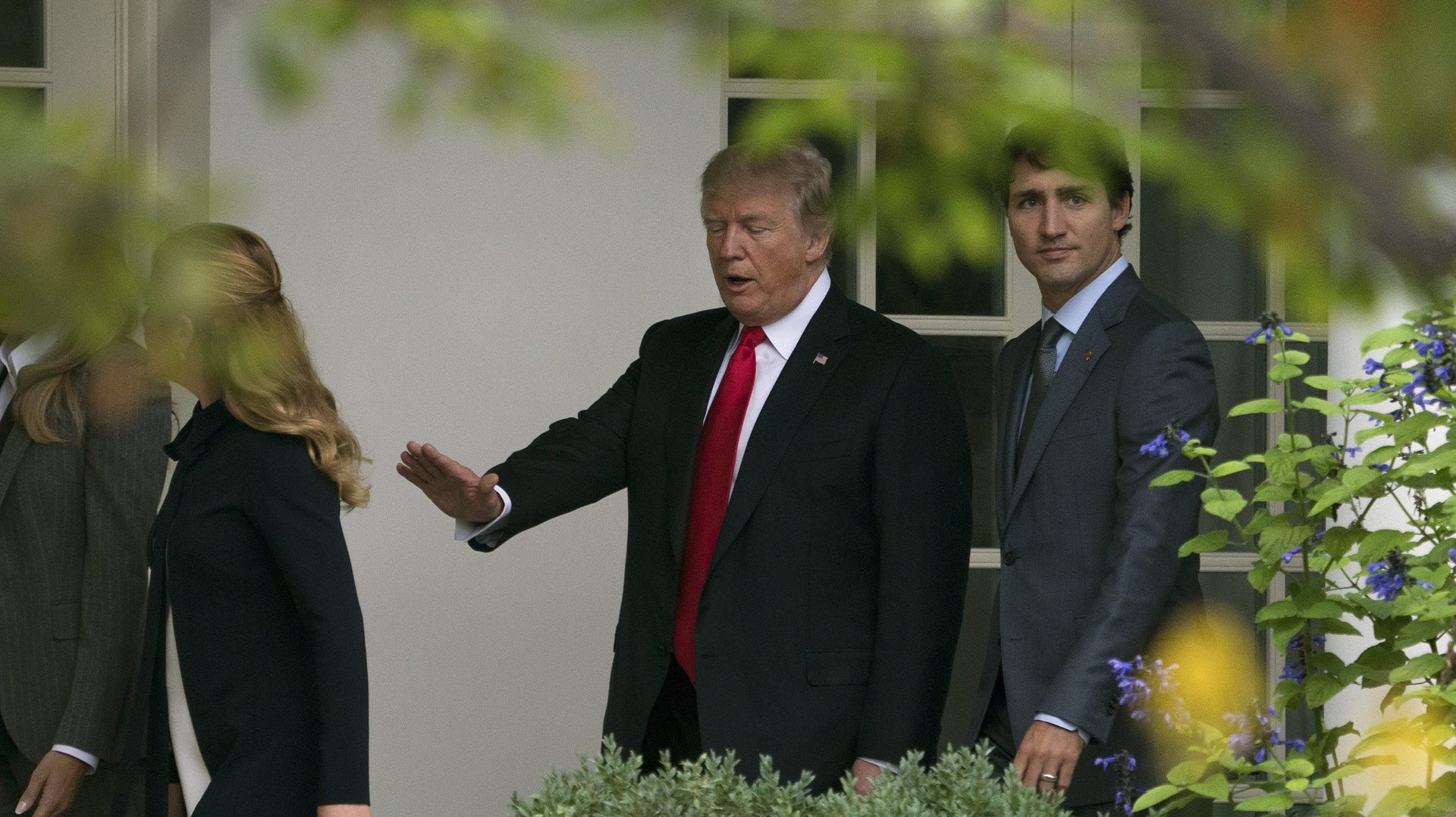Trump’s threats to tear up Nafta are starting to look less like a bluff to others at the negotiation table
Donald Trump again said Oct. 11 that he might terminate the North American Free Trade Agreement (Nafta) with Canada and Mexico—or he might not.


Donald Trump again said Oct. 11 that he might terminate the North American Free Trade Agreement (Nafta) with Canada and Mexico—or he might not.
In past months, parties interested in keeping the two-decades-old trade agreement alive have taken such Trumpian declarations—which he has made repeatedly—as empty threats. But now that the three countries have reached the most contentious part of the renegotiation, nerves are starting to fray.
If Trump was bluffing all this time, he’s still not showing any signs of it. During the fourth round of talks, which started on Oct. 11, his administration is expected to introduce several controversial proposals that in the view of one of the US’s top business lobbyists, Tom Donohue, from the US Chamber of Commerce, “could doom the entire deal.”
They include a sunset clause under which Nafta would have to be re-approved by all member countries every certain number of years or die; rules to ensure that more US-made parts go into products traded between the three countries; and doing away with certain dispute-resolution mechanisms. Those polices represent an affront to Canada and Mexico, which have made it clear they don’t care for them.
To get a sense of the souring mood, here are some examples of the shifts in thinking by some of the main characters in the NAFTA drama.
US business
Just a few months ago, Donohue said he felt encouraged by his meetings with US officials. At an April talk in Mexico, he assured attendees that ”despite what you may see in the news, or hear in the news, there is a constructive process underway behind the scenes.”
Donohue was again in Mexico earlier this week, and he sounded much different. He called the Trump administration proposals “unnecessary and unacceptable.”
“We’ve reached a critical moment,” he added. “The chamber has had no choice but ring the alarm bells.”
Mexican business
Confidence in the renegotiation of Nafta has also been deflating in Mexico. Bosco de Vega, chief of Mexico’s National Agriculture Council, recently told the Financial Times (paywall) that his odds of a successful new pact have reversed in the past few months from 70:30 to 30:70.
Juan Pablo Castañón, head of Mexico’s largest business trade group, had put Nafta’s survival chances even higher, at 90% (link in Spanish) back in August. Now he’s floating the possibility of Mexico walking out (Spanish) of talks. “We’re interested in free trade, but not at any cost,” he told Mexican broadcaster ADN 40 yesterday.
The Mexican peso
The currency took a nosedive after the election on fears that Trump’s “America First” attitude would damage Mexico’s economy. As Trump’s ambitious agenda stalled in the following months, the peso recovered those losses, and then some. But with Nafta talks getting gnarly, the peso has been slipping again recently.
Justin Trudeau
The Canadian prime minister has been upbeat about Nafta’s prospects. He still is, as he said during a press conference after a meeting with Trump yesterday. But now he’s qualifying his optimism.
“Circumstances are often challenging, and we have to be ready for anything, and we are,” he said. “Canadians are aware the Trump administration makes decisions that surprise people from time to time.”